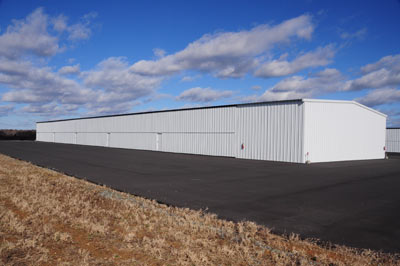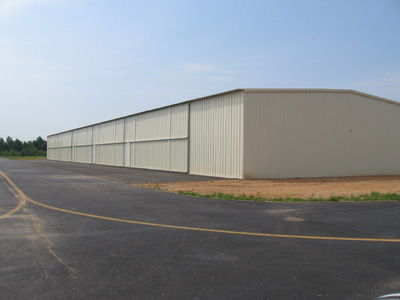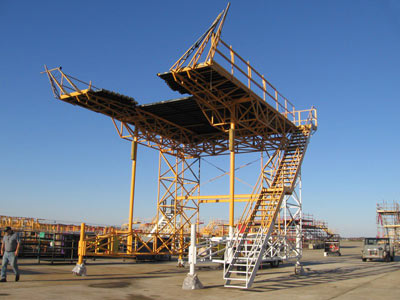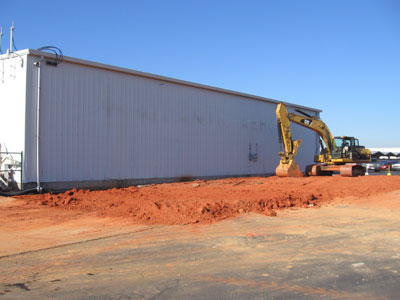5 Ways Triad Businesses Can Benefit from Sustainable Commercial Construction in 2025
As demand for smarter, more environmentally responsible construction grows, businesses in North Carolina's Triad region—Greensboro, High Point, Winston-Salem, and surrounding areas—are increasingly exploring sustainable commercial construction. In 2025, this trend is no longer limited to large tech companies or LEED-certified office towers. It's a viable, cost-effective strategy for a wide range of businesses looking to reduce operational costs, improve building performance, and meet evolving regulatory and market expectations.
Here are five key ways Triad-based businesses can benefit from embracing sustainable construction methods in the coming year.
1. Long-Term Cost Savings Through Energy Efficiency
One of the most immediate and measurable benefits of sustainable construction is a reduction in energy costs. High-performance insulation, advanced HVAC systems, LED lighting, and smart energy management tools all contribute to lower utility bills.
In North Carolina's variable climate—where hot summers and chilly winters drive energy use—energy-efficient building systems can lead to 20–30% reductions in monthly costs. Businesses in the Triad region also benefit from state and federal incentives when upgrading to efficient systems or pursuing green building certifications.
Whether constructing a new facility or retrofitting an existing one, investing in sustainability often pays for itself over time through reduced operational expenses.
2. Improved Indoor Air Quality and Employee Wellbeing
Sustainable commercial buildings are designed with occupant health in mind. Low-VOC (volatile organic compound) paints and adhesives, proper ventilation systems, and moisture-resistant materials all contribute to cleaner indoor air.
For businesses with office staff, retail customers, or healthcare operations, indoor air quality can directly impact productivity, customer satisfaction, and absenteeism. In 2025, expectations around healthy work environments have increased, and buildings that meet or exceed environmental standards are better positioned to attract and retain both employees and clients.
3. Enhanced Reputation and Brand Image
Consumers and clients increasingly favor companies that demonstrate environmental responsibility. A business that operates in a sustainably built or renovated facility sends a clear message: it values long-term impact over short-term gain.
In the Triad's competitive business climate—whether in logistics, manufacturing, medical services, or professional offices—having a sustainable facility can become a differentiator. Displaying certifications such as ENERGY STAR, Green Globes, or even basic environmental performance benchmarks can enhance your public image and appeal to values-driven customers and investors.
4. Greater Resilience to Regulatory and Market Changes
As local governments and regulatory bodies move toward stricter environmental standards, businesses that build sustainably now will be ahead of the curve. By 2025, building codes across many municipalities are incorporating requirements related to energy efficiency, stormwater management, and sustainable materials.
Triad-area businesses that future-proof their facilities with sustainability in mind may avoid costly retrofits down the line. For example, green roofing systems can help meet stormwater control requirements, while energy modeling can ensure compliance with newer energy codes.
Moreover, commercial tenants are becoming more selective, often choosing properties with lower utility costs and modern environmental systems.
5. Access to Financial Incentives and Grant Programs
Local and federal programs continue to support green construction projects with a mix of tax credits, grants, and low-interest financing. In 2025, North Carolina businesses can take advantage of incentives for installing solar panels, upgrading lighting systems, or achieving certain energy performance thresholds.
Some programs even apply to design and engineering services, reducing upfront planning costs. For small businesses in the Triad, this support can make sustainable building practices financially feasible, even on modest budgets.
Additionally, sustainable buildings often have higher appraised values and lower insurance premiums, contributing to long-term financial benefits beyond direct energy savings.
Conclusion
Sustainable commercial construction is no longer just an idealistic goal—it's a practical, strategic investment. For businesses in the Triad region of North Carolina, the benefits range from lower operational costs to enhanced public image, healthier workspaces, and better compliance with evolving regulations.
As 2025 continues to bring changes in how buildings are used, powered, and perceived, investing in sustainable construction can help businesses not only adapt—but thrive.







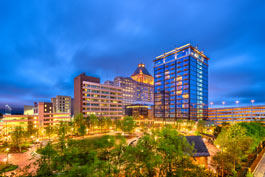 Greensboro, NC
Greensboro, NC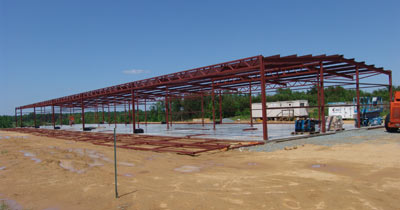
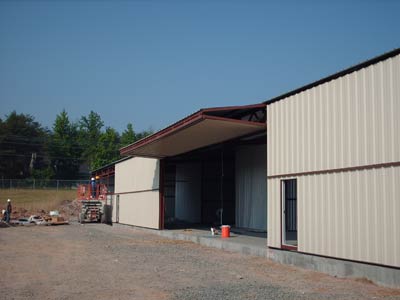
.jpg)
